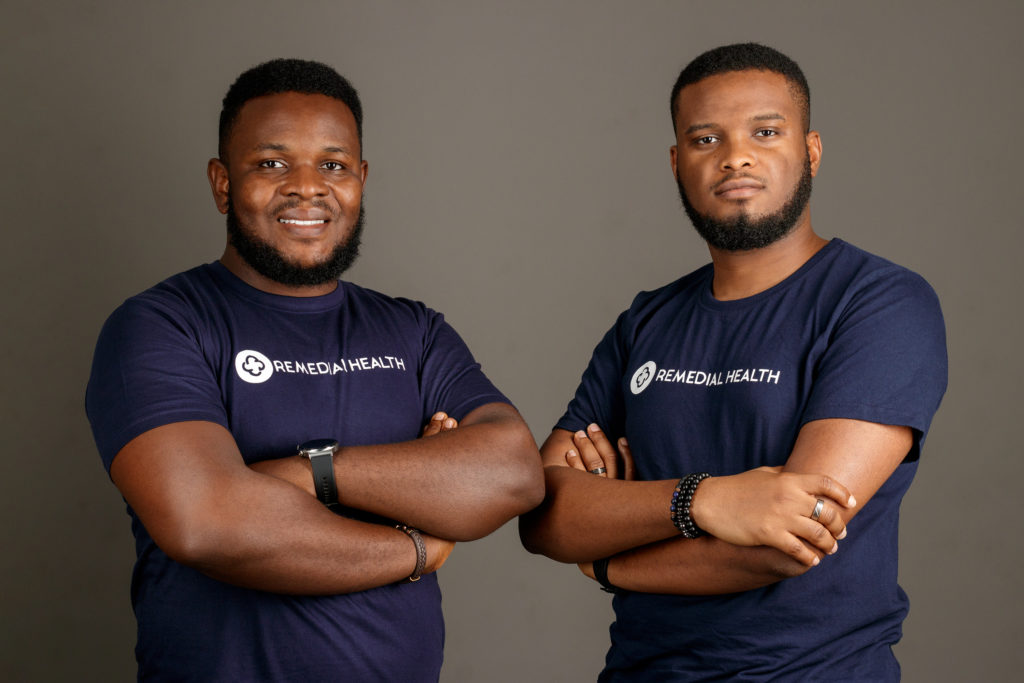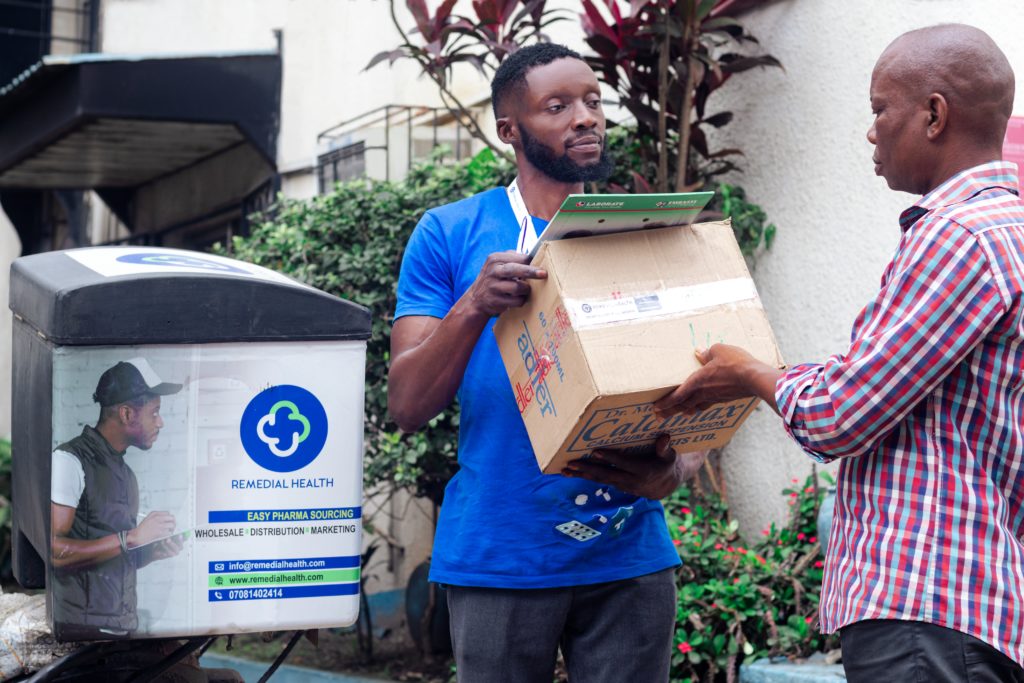
Nigeria has a long-standing battle with counterfeit drugs. In 2002, a study by the National Agency for Food and Drug Administration and Control (NAFDAC) found that nearly 41% of pharmaceuticals in the country were counterfeit. Twenty years on, over 70% of medical drugs being dispensed in Nigeria today are substandard. Counterfeit drugs deplete Nigerians’ trust in the country’s healthcare system, sabotage the local pharmaceutical industry, compromise the treatment of diseases, and kill people.
While there have been efforts by the Federal Government to solve this problem, the pharmaceutical industry still needs more solutions. Remedial Health is a Nigerian health tech startup providing technology solutions to this problem in 16 Nigerian states.
Founded in 2021 by Samuel Okwuada and Victor Benjamin, Remedial Health offers digital procurement and PMR (patient medication records) platforms that make it easier for neighbourhood pharmacies, PPMVs, and hospitals to access affordable and authentic retail medicines. Healthcare providers can source vetted medications and receive them within 24 hours via Remedial Health’s logistics network. The startup also offers pharmacies and PPMVs credit to fund inventory purchases and provide loans and salary advances for employees. Remedial Health is backed by Y-Combinator (YC), a startup incubator, to which Okwuada attributes the startup’s rapid growth.
During the COVID-19 lockdown, hospitals that needed drugs could not access them due to the markets being shut down. On a call with TechCabal, Okwuada, the CEO, said that the demand he witnessed for medicine during COVID as an importer of pharmaceuticals in Nigeria inspired the start of Remedial Health.
Since it started operations, Remedial Health has sold 50 million individual packs of medicine, according to Okwuada. He added that achieving this milestone has been difficult for the startup because they had to build the infrastructure they use and are currently operating in a sector that does not have fixed regulations.

Due to its credit facilities, the startup faces the risk of high rates of impairment charges that plague financial institutions in Nigeria. When asked about Remedial Health’s plans for minimising this risk, Okwuada told TechCabal that the startup’s inventory financing model and the fact that it operates in the B2B sector have helped it reach a repayment rate of 97.5%. He added that Remedial Health signs a contract with its customers that permits it to retrieve goods to the value of the amount being owed, though it has never had to do this.
The startup has now raised $4.4 million in seed funding to accelerate its expansion across Nigeria and to provide access to credit for inventory purchases for neighbourhood pharmacies, proprietary patent medicine vendors (PPMVs), and hospitals in the country. It was present in 6 states at the start of the year and is now in 16 states, but it wants to grow across the country and expand to East and West Africa by 2023.
In a press release on the raise, Okwuada said, “Neighbourhood pharmacies and PPMVs have the potential to be the face of a thriving healthcare system in Africa, and we believe that technology can play a significant role in making this vision a reality. The funds that we have raised and the strategic support from our investors will enable us to deliver the solutions to address various challenges that have hampered these businesses’ growth for many years and make it easier to safeguard lives and livelihoods across the continent for years to come”.
The seed funding round was led by Global Ventures, who re-invested after participating in the previous round. Other investors were Tencent, Y Combinator, Cathexis Ventures, LightSpeed Venture Partners Scout Fund, Ventures Platform, Alumni Ventures, and True Capital Management. Angel investors such as Guillaume Luccisano and Christopher Golda also participated in the fund.
In what was an oversubscribed seed round, Okwuada said that Remedial Health used three criteria to sort for investors. The criteria used were the reach of the investors, the investors’ interest in Africa (42% of global seizures of counterfeit drugs are made in Africa), and interest in social benefit.
On Friday, the 23rd of September, TechCabal in partnership with Moniepoint (by TeamApt) will host the most important players in tech and business on and off the continent to discuss the future of commerce in Africa. Register now to attend.



















